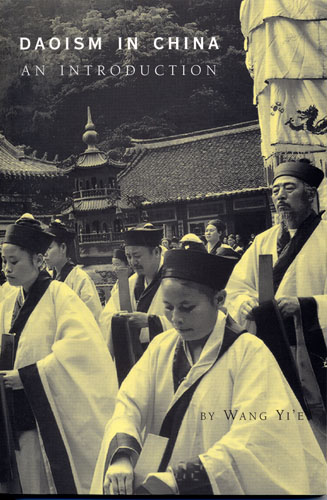
Daoism in China
An Introduction
by Wang Yi'e, translated by Zeng Chuanhui
Daoism is perhaps the least understood of the world's major religions. Although many millions of readers are familiar with one or more of the seemingly endless translations of the Daodejing (aka Tao Te Ching), most assume that Daoism refers chiefly to a philosophical school or outlook based on naturalism and spontaneity. However, Daoism is vastly richer than that, its roots steeped in many strands of Chinese philosophy, religion, and folklore, including Buddhism and Confucianism. Indeed, due to several millennia of cross-influences, these other belief systems, even Chinese culture itself, cannot be understood without some basic grasp of Daoism.
Here, for the first time, is a concise introduction to the many-faceted entity that comprises Daoism in China. Beginning with a discussion of spirituality in early China, it moves on to describe the rise of Daoist masters, lineages, and sects, and introduces and explains key deities, temples, and sacred places, as well as Daoism's core texts and scriptures. It concludes with an overview of Daoism in modern China and its organizations worldwide, and a discussion of the influence of Daoism on Chinese culture and folk beliefs. Written for the lay reader by a noted Chinese Daoist scholar, this is an essential text for anyone interested in Chinese culture or curious about one of the world's important belief systems.
Wang Yi'e is a professor of philosophy, deputy chief of the research section of the China Taoist Association, and an editor in of the quarterly China Taoism. She is the author of numerous books and articles on Daoism, including the History of Taoist Culture in China (1994), and Taoism and Chinese Art (1997).
208 pp, 5.5 x 8.25, Soft
96 photos
Chinese religion & culture
ISBN: 1-891640-39-9
$19.95





